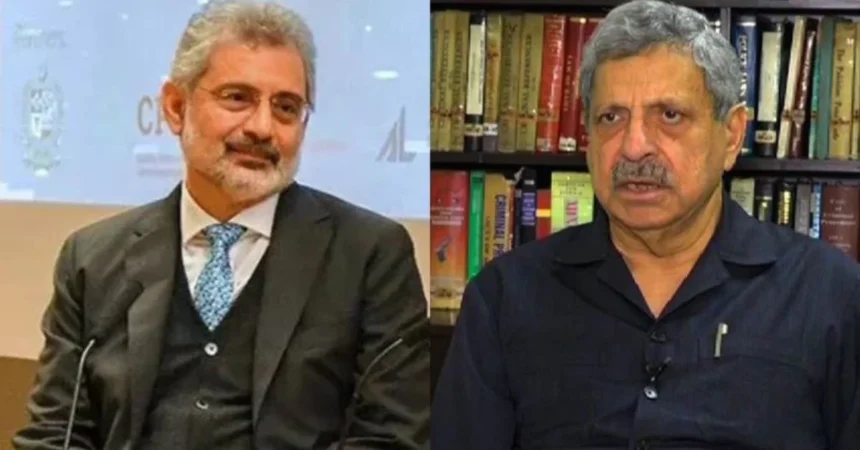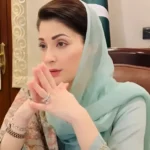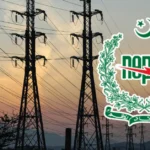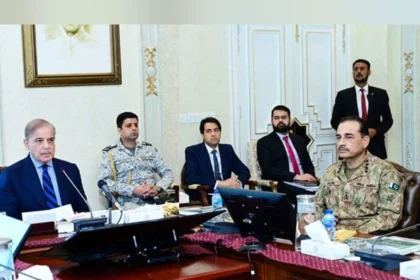Overview of the Ruling
In a landmark ruling, Chief Justice of Pakistan Qazi Faez Isa has dismissed the Pakistan Tehreek-e-Insaf (PTI) party’s review petition concerning its intra-party elections. This decision marks a significant moment in the ongoing saga of political maneuvering within the party, underscoring the challenges PTI faces in maintaining its internal democracy while navigating complex electoral regulations.
Court Proceedings and Criticism
The Supreme Court’s proceedings highlighted the growing tensions within the PTI as it grapples with its electoral identity and the implications of its internal governance. During the hearing, Chief Justice Isa criticized the PTI’s legal representatives for failing to present substantive arguments that could substantiate their claims. This lack of compelling legal reasoning led to the court’s decision to dismiss the petition outright.
Justice Musrat Hilali, a prominent figure in the proceedings, raised significant concerns about the PTI’s failure to conduct timely intra-party elections. The Chief Justice’s remark, “I prefer people who talk on TV rather than talking on TV,” encapsulated the court’s frustration with the disconnect between the party’s public proclamations and its actual electoral practices. This sentiment reflects a broader critique of political accountability, emphasizing that mere rhetoric is insufficient for a functioning democracy.
Timeline of Events
The controversy surrounding the PTI’s internal elections traces back to a pivotal decision made on January 13, which had a direct impact on the party’s ability to organize its internal elections. Following this, elections were held on February 8, but the court questioned why the PTI did not take proactive measures to request a postponement from the Election Commission to ensure that its internal electoral process was conducted properly.
Justice Hilali pointedly noted that the party had ample opportunity to seek additional time, highlighting a potential oversight on the part of PTI leadership. The failure to engage with the Election Commission during this crucial period raises questions about the party’s commitment to democratic principles and its ability to uphold its internal governance.
Legal Arguments and Tensions
In response to these critiques, PTI’s lawyer, Hamid Khan, argued that the party was being unfairly deprived of its fundamental rights. He claimed that stripping PTI of its electoral symbol constituted an unconstitutional act, one that undermined the very essence of democratic participation. This assertion reflects the deep-seated anxieties within the party regarding its legal standing and electoral viability amidst a turbulent political landscape.
The court’s interrogation did not stop there. Justice Muhammad Ali Mazhar pressed the PTI representatives further, questioning why the party did not challenge specific provisions of the Election Act after the significant ruling earlier in the year. This line of questioning revealed the court’s expectation that political parties must actively engage with legal frameworks and assert their rights within those boundaries.
Khan’s refusal to continue his arguments was particularly striking, as he cited a belief that Chief Justice Isa was biased against the party. This refusal underscores the tense atmosphere surrounding the proceedings and the challenges faced by PTI in defending its position in court. The perception of bias within the judiciary can lead to broader implications for public trust in the legal system, especially in politically charged cases such as this.
Consequences for PTI
The dismissal of the review petition has far-reaching consequences for the PTI. It raises fundamental questions about the party’s governance structure, particularly its adherence to democratic processes and its capacity to engage its members in meaningful electoral practices. The inability to conduct timely intra-party elections can alienate party members and diminish the party’s appeal to the electorate at large.
This ruling also places significant pressure on the PTI leadership to reevaluate its internal governance mechanisms. The party must consider how it can strengthen its electoral processes and ensure that its members are adequately represented within its decision-making structures. Failure to address these concerns may result in further legal challenges and undermine the party’s credibility as a major political force in Pakistan.
The Judiciary’s Role
Furthermore, the court’s decision serves as a critical reminder of the judiciary’s role in enforcing electoral integrity. The Supreme Court has historically acted as a guardian of democratic principles, and its willingness to scrutinize the actions of political parties is indicative of a commitment to uphold the rule of law. This ongoing engagement between the judiciary and political entities is essential for fostering a robust democratic environment in Pakistan.
As the political landscape evolves, the implications of the Supreme Court’s ruling may reverberate beyond the PTI. Other political parties in Pakistan will undoubtedly be watching closely, as they assess the legal frameworks governing their internal operations. The decision sets a precedent regarding the responsibilities of political parties to adhere to electoral guidelines and engage transparently with the electorate.
Impact on Upcoming Elections
Moreover, the political ramifications of this ruling may extend to the upcoming electoral cycle. The PTI, already facing significant challenges from rival parties, will need to bolster its internal cohesion and address the concerns raised by the judiciary to remain competitive in the political arena. A fragmented party struggling with internal disputes could find it increasingly difficult to mobilize support from its base.
The case has also ignited discussions about the broader issue of electoral reform in Pakistan. Many political analysts and commentators argue that the current electoral framework needs to be revisited to enhance transparency and accountability. Strengthening the processes governing intra-party elections is crucial for ensuring that political parties can effectively represent their members and adhere to democratic norms.
Strategic Reforms for PTI
In light of this ruling, the PTI may need to consider strategic reforms aimed at revitalizing its internal structures. Engaging members in meaningful dialogue about governance and decision-making could foster a sense of ownership and commitment among party supporters. This approach may also help the party rebuild trust with its base and mitigate the potential fallout from the court’s ruling.
The ongoing discourse surrounding the PTI’s internal elections reflects broader societal concerns about political accountability and transparency. Citizens increasingly demand that political parties adhere to democratic principles and engage in practices that reflect the will of their members. The court’s decision serves as a wake-up call for all political entities in Pakistan to prioritize internal democracy and engage with their constituencies.
The Public Image Challenge
As the PTI navigates the implications of this ruling, the party must also consider its public image. Perceptions of inefficiency and internal discord can significantly impact voter sentiment, particularly in a politically charged environment. The party’s leadership must work diligently to address these perceptions and reaffirm its commitment to democratic governance.
Looking ahead, the PTI faces the dual challenge of internal reform and external competition. As political rivals position themselves for the upcoming elections, the PTI must strategically align its message and engage effectively with the electorate. The path forward will require careful consideration of how the party can leverage its strengths while addressing the criticisms highlighted by the judiciary.
Scrutiny and Future Compliance
In the wake of this ruling, the PTI’s leadership is likely to face increasing scrutiny from both the judiciary and the public. Ensuring compliance with electoral laws and fostering internal democracy will be paramount for the party’s survival and success in the evolving political landscape. The Chief Justice’s remarks resonate as a clarion call for accountability, underscoring the critical role that judicial oversight plays in maintaining the integrity of Pakistan’s political system.
As the situation unfolds, the PTI must take proactive steps to address the concerns raised by the Supreme Court. Developing clear strategies for conducting intra-party elections and engaging with the Election Commission will be vital for restoring confidence in the party’s governance. Failure to do so may result in further legal challenges and erode public trust in the PTI as a legitimate political force.
Broader Implications for Political Framework
The implications of this ruling extend beyond the PTI, signaling a need for systemic changes within Pakistan’s political framework. The interaction between political parties and the judiciary is indicative of the complexities of governance in a democratic society. Ultimately, the effectiveness of political parties in adhering to democratic principles will shape the future of governance in Pakistan.
As the PTI reflects on its position, it will need to navigate the delicate balance between maintaining its identity as a major political party while responding to the expectations of its members and the wider electorate. The path forward may be fraught with challenges, but it is essential for the party to demonstrate its commitment to democratic governance and accountability.







